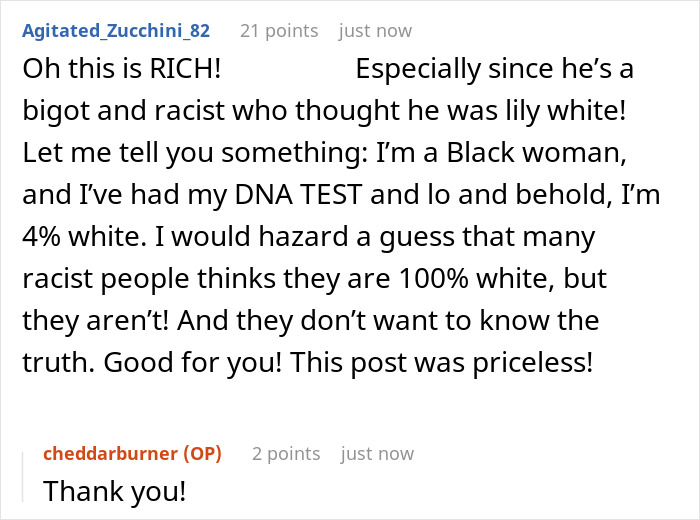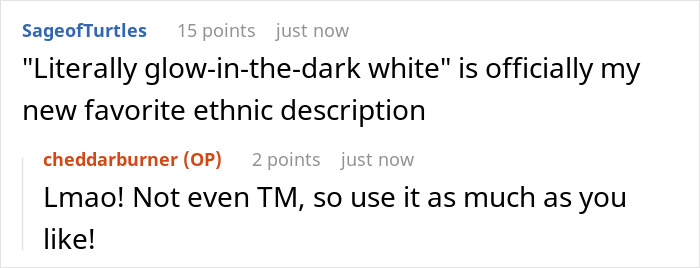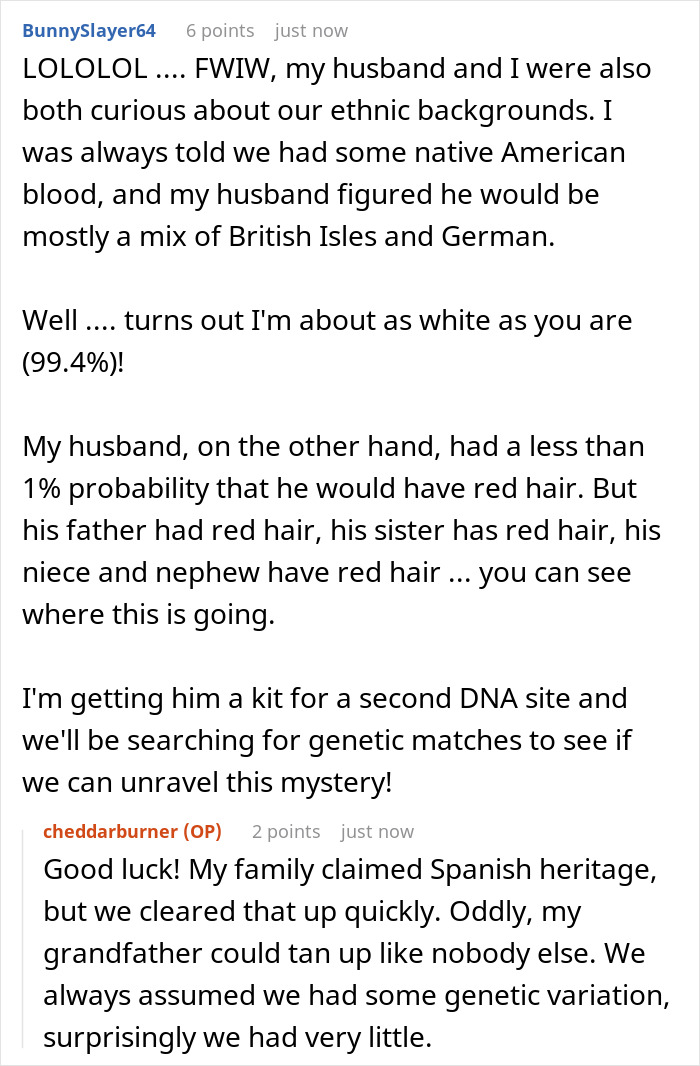Most people know only a few branches of their family tree and have no clue about their other ancestors. Luckily, a DNA test can unlock the secrets to our incredible genetic history, and, as it turns out, it can even silence a racist. This happened to a man who shocked his wife’s parents with a DNA test that stopped their racist comments once and for all.
Bored Panda contacted Tiffany Roy, the president of ForensicAid, and Dr. Dan Krane of Forensic Bioinformatics, for more information about DNA testing and their opinion on this unique situation.
More info: Reddit
Racism is no match for actual DNA evidence, and this rude father-in-law was in for a shock when he was presented with genetic testing results

Image credits: Harrison Haine (not the actual photo)
A man shared that in the first interaction with his wife’s parents, he realized that her father was extremely racist, and it almost messed up their relationship

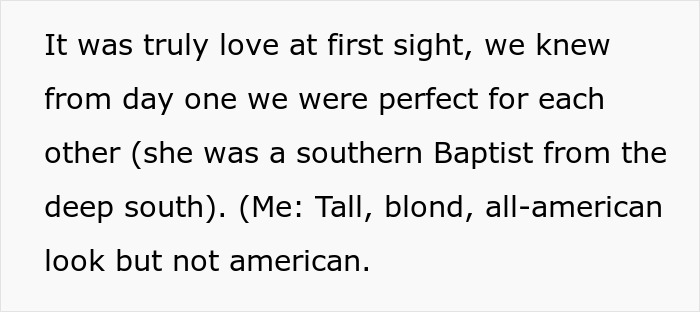


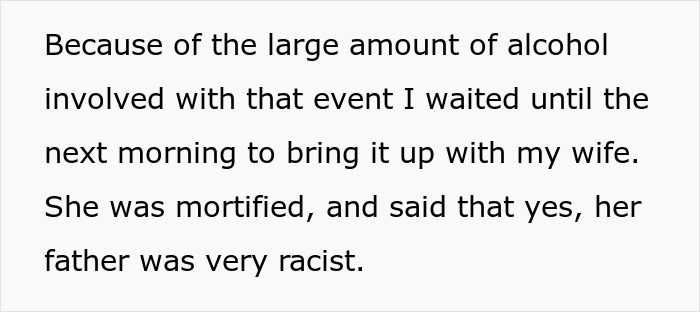


Image credits: Steven Arenas (not the actual photo)
Since he was interested in his family history, he, his wife, and two kids took a DNA test, the results showed that his son had 2% Congo DNA while his wife had 8%

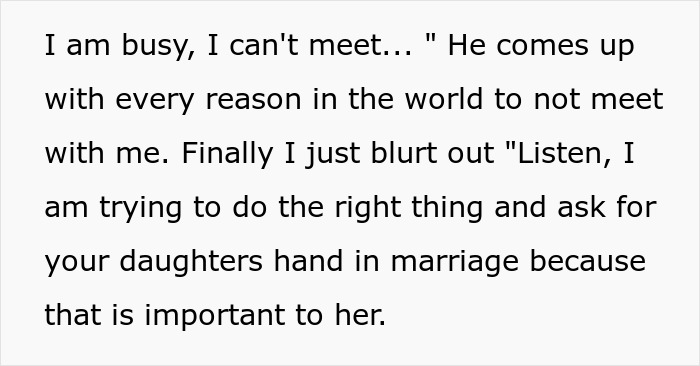


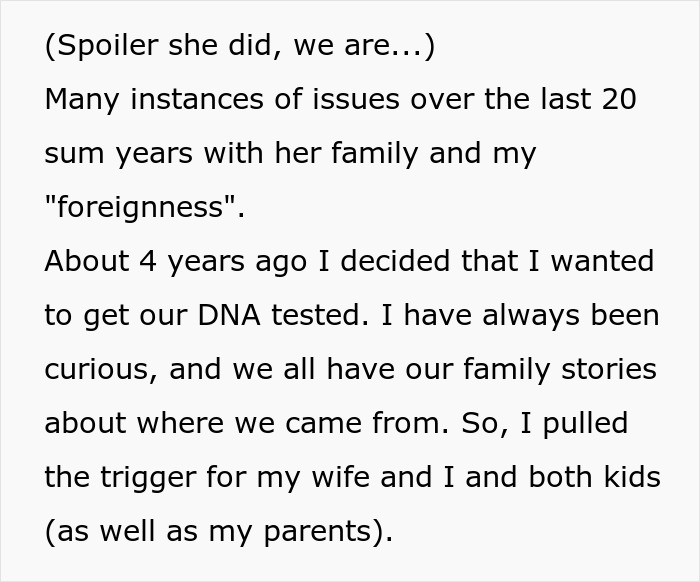
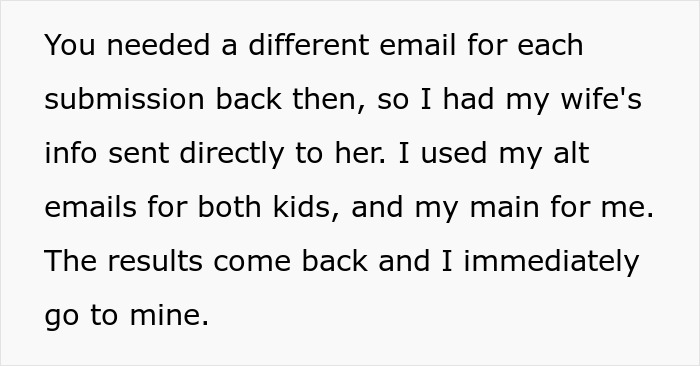
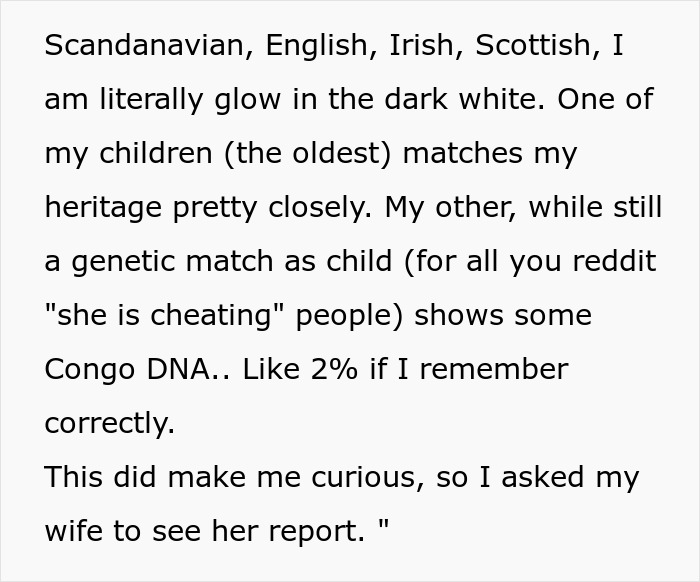
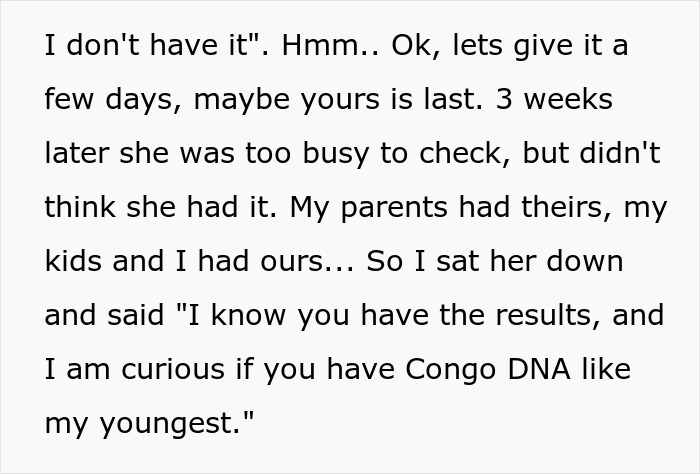

Image credits: CDC (not the actual photo)
Seeing it as a way to get back at his in-laws, he let his son share the DNA results with them, when they found out, they refused to do a DNA test, but they did stop with the racist comments


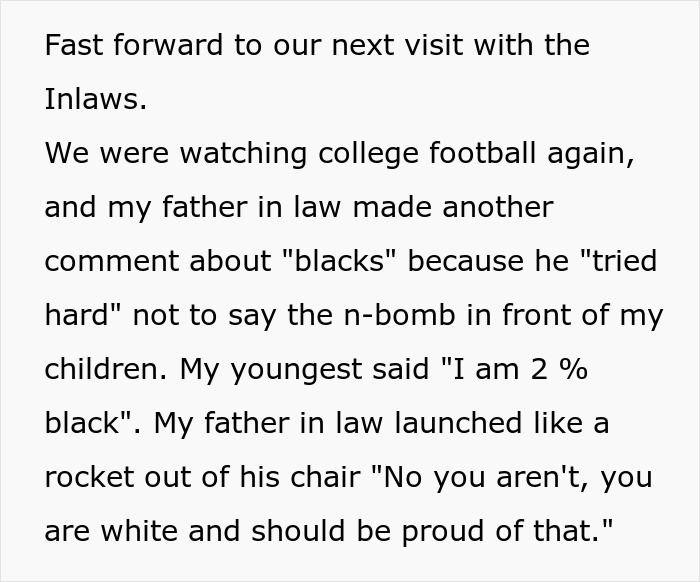

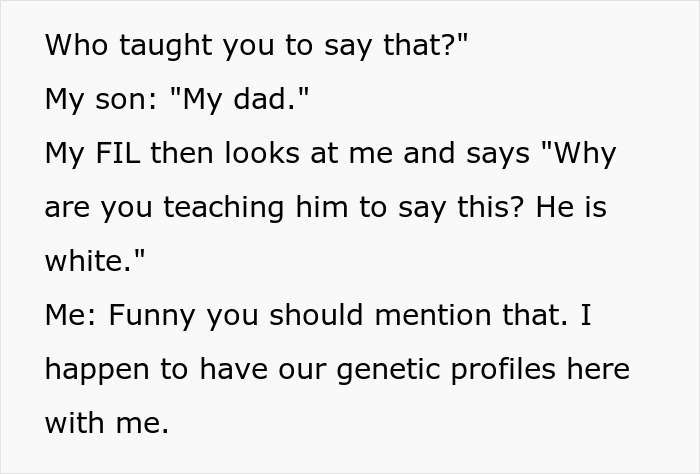
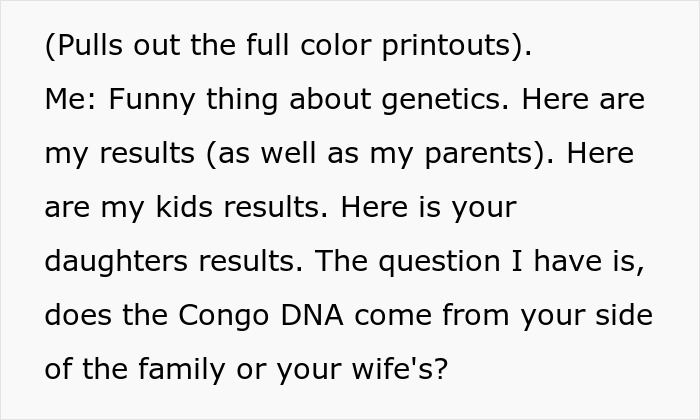


Image credits: u/cheddarburner
The man shared that the genetic test results “shifted the power dynamic” between him and his FIL
Ancestry tests might provide surprising information, which is why many people are interested in taking them. These genetic tests tell stories of the past and help us connect the dots about who we indeed are. It is estimated that approximately 21% of Americans have taken a mail-in DNA test. People usually undergo genetic testing to learn more about their ethnic heritage or to understand their disease risk and the chances of it being passed to their future children.
According to Tiffany Roy, the forensic DNA expert we consulted, “DNA testing is like any other human endeavor. It’s not without error and bias. It’s not a perfect science so it really just depends on several different factors how that might impact a person’s ethnicity. The accuracy is dependent on the knowledge, training and experience of each individual analyst handling the evidence. Some are very good. Too many are subpar.”
When the poster received his test results, he found that he had Scandinavian, English, Irish, and Scottish heritage. However, he realized his youngest child’s report showed 2% Congolese DNA. Eventually, when he confronted his wife, her report showed that she had 8% Congo DNA, which is when he put the pieces together and realized that this genetic strain came from her parents.
To help us understand these percentages better, here’s what Professor Dan Krane had to say: “Genetic testing for ancestry purposes looks at a large number of places along the length of an individual’s chromosomes and compares what is found to that which has been seen in a number of different populations of individuals. If 8% of the regions that these tests characterize are similar to those that were found in a Congolese reference group, for instance, then a customer would get a report that says that they have an 8% Congolese ethnicity estimate.”
He also stated, “The tests themselves are quite accurate in terms of the information that they get from a person’s DNA. We should be less confident about our understanding of the populations that that information is compared to — ‘Congolese. for instance, may not mean the same thing today that it meant 200 years ago and may not have ever been that well-defined a population to begin with.”

Image credits: Mikhail Nilov (not the actual photo)
A person’s genetic history comes from their parents, grandparents, and all the ancestors before them. The type of DNA you inherit is random, and your parents might have characteristics they don’t pass down to you at all. If you look at seven generations back, less than 1% of your DNA is likely to have come from your ancestors.
To understand more of the FIL’s genetic role in this story, Dr. Dan Krane stated: “Grandparents typically account for between 20 and 30 percent of a person’s DNA. More distant relatives account for smaller percentages. An inheritance between 3 and 7% could come from a person’s 3rd, 4th, 5th or even 6th great-grandparents. Something like 8% could be from a great, great-grandparent (but there are other possibilities as well like both a great, great, great-grandparent as well as a great, great, great, great-grandparent).”
A Pew Research Center survey found that 27% of people were surprised at the racial or ethnic background revealed in their test results. We asked Tiffany Roy if she had encountered examples of people surprised by genetic testing results. She shared that “There are a number of stories about misattributed parentage. In my own family, two of my male relatives have had children they didn’t know existed find them through these databases.”
Dr. Dan Krane also shared examples: “There are many well-publicized instances of people being surprised at what ancestry testing has revealed. The ones that I find most remarkable are those where an individual finds that they have a number of unknown half-siblings — either because of extra-marital relationships that one or both of their parents were having, or because of fertility doctors using their own sperm to help women become pregnant.”
Genetic testing might reveal way more than we bargained for. In this case, it helped put a racist in his place and gave the poster a sense of relief. The post got 2.8k upvotes and comments, with people applauding the author’s plan and execution. Have you ever taken a DNA test or known someone who received shocking genetic test results? Spill the tea in the comments; don’t leave us hanging!
Commenters were glad the poster could stand up to his FIL, and many shared similar experiences of getting surprising DNA test results



